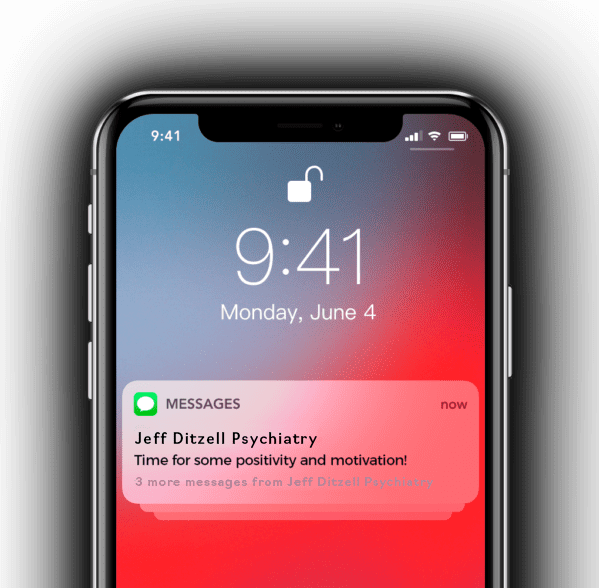Home / Mental Health Journal / Why Do People Mistake Narcissism For High Self Esteem

Why people form such positive first impressions of narcissists
The “charismatic air†of narcissists– from their flashy attire, to their self-assured behaviors, to their charming glances, to their witty humor– often makes a big first impression. At the same time, people seem to be really good at accurately perceiving narcissism in others based on minimal information (even just physical appearance is usually enough of a cue to accurately perceive narcissism). Which raises an interesting question: why are narcissists– which are characterized by extremely high levels of exhibitionism, arrogance, sense of superiority, vanity, entitlement, exploitativeness, and the incessant need for acclaim from others– so attractive?
Canadian researchers Miranda Giacomin and Christian Jordan thought there might be more than meets the narcissistic eye. To shed further light on the allure of narcissism, they examined whether narcissists make positive first impressions because people may confuse narcissism for high self-esteem. While many people tend to think that narcissists score sky high in self-esteem, the association between narcissism and self-esteem is actually rather small, and narcissism and self-esteem have very different developmental pathways and outcomes.*
This is just what the researchers found. People who scored high in narcissism and self-esteem were perceived as having higher self-esteem than people who were equally high in self-esteem but less narcissistic. They even looked at dating profiles and found that heterosexual female participants indicated greater interest in meeting males who were more narcissistic based on their Tinder profile pictures, and this effect was specifically explained by higher perception of self-esteem, not narcissism. These results suggest that perceptions of narcissism were being overridden by the positive effect of perceptions of self-esteem on liking.
But here’s the kicker: perceptions of narcissism by itself were associated with less liking of the person. In fact, the pattern of greater liking of narcissists was reversed when perceivers were explicitly told that narcissistic targets scored high in narcissism. In these cases, people preferred those who scored high in self-esteem but low in narcissism.
Why do people perceive narcissists as having especially high self-esteem?
These findings suggest that those scoring high in narcissism make positive first impressions because people perceive them to have high self-esteem, causing them to overlook their narcissism (even in dating profiles). However, people aren’t attracted to the narcissism per se, and the pattern of greater liking was reversed when perceivers were explicitly told that people scored high in narcissism. Why are so many people misperceiving narcissism as self-esteem? The researchers raise some possibilities.
One possibility is that people hold an implicit belief that narcissists have exceptionally high self-esteem, and so perceptions of narcissism may lead them to infer higher self-esteem. This possibility seems unlikely considering perceptions of narcissism were negatively associated with liking of the person.
A more likely explanation is that narcissists are expert manipulators of the signals associated with self-esteem. Self-esteem is a socially valuable trait, and other studies have also found that people are viewed more positively when they are perceived as having higher levels of self-esteem. It’s likely that those scoring high in narcissism are very aware of this fact, and strategically present themselves in ways that convey high self-esteem.
There is also likely an interaction between the perceiver and the narcissist. It takes two to tango. Because those scoring higher in narcissism do tend to be more popular and have larger social networks than those scoring lower in narcissism, people may have the drive to associate with them to attain status by association. After all, to have narcissistic needs is to be human, and narcissists are very good at drawing in vulnerable people who are particularly deficient in their esteem needs.
With that said, some people may be more likely than others to perceive narcissists more positively not because they are vulnerable, but because they have their own extremely high drive for social status and power, and think the narcissist can help them reach their goals. It would be interesting for future studies to look at the narcissism levels of the perceiver.
While narcissists can be so alluring at first, the attraction is likely to falter once people begin to recognize the narcissists’ less desirable qualities and the superficial nature of the connection. Indeed, narcissists live in the “emerging zoneâ€, situations involving unacquainted individuals, early-stage relationships, and short-term contexts. It is in this zone that narcissists are more likely to be perceived positively, because they are motivated to make a good first impression.
In contrast, narcissists tend to crash and burn in the “enduring zoneâ€, situations involving acquainted individuals, continuing relationships, and long-term consequences. As the relationship develops, narcissists start displaying behaviors that are evaluated negatively, such as arrogance and aggression. Narcissists cyclically return to the emerging zone because they are addicted to the positive social feedback and emotional rush they get from the emerging zone. As a result, they are good at being popular, making new friends, and acquiring social status, but often have great difficulties sustaining meaningful and intimate relationships.
Implications
There are obvious implications here for dating and politics. In the realm of dating, often the most valuable dating partners will not announce themselves with flashy attire and a perfectly orchestrated smile. In fact, it’s quite the opposite: those with a healthy self-esteem usually don’t feel the incessant need to announce their greatest qualities upfront, because they are confident that all will be revealed in time (they have a stable sense of worth). Perhaps we should all give people more of a chance in the realm of dating and relationships, and not mistake being reserved or even just quietly confident as a lack of self-esteem.
In terms of implications for politics, consider this study: “Is high self-esteem a path to the White House? The implicit theory of self-esteem and the willingness to vote for presidential candidates.†Since so many people are swayed in their voting decisions by their perceptions of the self-esteem levels of the candidates, it seems important to accurately distinguish between narcissism and high self-esteem– especially considering that the current president of the United States is giving so much hope and inspiration to narcissistic entertainers that they, too, can one day become president.
Finally, I think there are some important implications for those scoring high in narcissism. I like to think compassionately about all different sources of variation, and I think those who score high on the narcissistic spectrum create a lot of unnecessary suffering for themselves as well as others. Instead of spending so much strategically manipulating the perceptions of others, I believe their time would be better spent cultivating a real sense of self-worth, and genuinely mastering things that make them feel proud of their earned competence.
While we often don’t think about narcissists as suffering, and it’s very easy to look at the showy exhibitionist with mocking glee, we must recognize that to be narcissistic is human, and we all shift our placement on the spectrum throughout our lives. When grandiosity gets too big (my colleague Emmanuel Jauk and I have quantified this tipping point), it can lead to great vulnerability, fear, anxiety, and even depression. Therefore, accurately distinguishing between narcissism and healthy self-esteem is pretty important, not only for the perceiver who scores low in narcissism but also for those who are addicted to esteem.
Scott Barry Kaufman is a psychologist at Barnard College, Columbia University exploring intelligence, creativity, personality, and well-being.

Dr. Jeff Ditzell, D.O. is the lead psychiatrist at Dr. Ditzell Psychiatry with over 25 years experience treating people for Anxiety, Depression, OCD, PTSD, Adult ADHD, Bipolar Disorder, using ketamine treatments, psychotherapy, and so much more.






